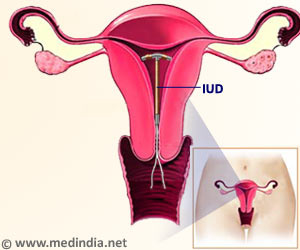Women as leaders can enhance better outcomes in the health sector but remain underrepresented despite evidence of positive impacts on finance, ethics, and healthcare policies.

A scoping review on the impact of women's global leadership: evidence to inform health leadership
Go to source).
‘Despite #women making up 70% of the global #healthcare workforce, they hold only 25% of #leadership positions. #medindia’





Advertisement
Women Leaders' Impact on Global Health
While good evidence is beginning to emerge that women leaders make a positive difference to maternal and healthcare policies and the reduction of health inequalities, it’s not yet clear what their impact might be on global health, they add.To find out, the researchers carried out a scoping review of peer-reviewed research to map evidence on the impact of women’s leadership in organizations in low and middle-income countries, focusing in particular on global health.
In all,137 relevant articles met the eligibility criteria and were included in the review. A study was tagged positive if it reported an improvement, increase, or benefit of the assessed outcome as a result of women’s leadership. It was tagged negative if it reported a decrease, weakening, or worsening of the assessed outcome. Null results didn’t report any change.
Most of the included studies reported a positive impact of women’s leadership: 119 (97%) were positive and statistically significant; 12 (9%) were positive and statistically insignificant. Some 35 (26%) studies reported negative and statistically significant results for particular outcomes while 13 (9%) reported negative and statistically insignificant results. And 33 (24%) reported null results. Around reported some combination of positive, negative, or null results.
Advertisement
Six Ways Women Leaders Enhance Global Health
The review identified women leaders’ positive influence on six areas of impact. These were: financial performance, risk, and stability; innovation; engagement with ethical and sustainability initiatives; health outcomes; organizational culture and climate, including reputation, employee retention, and team cohesion and communication; and influence on other women’s careers and aspirations.Even those studies reporting mixed findings still largely pointed to positive results, particularly when modified by other factors, such as better education, greater levels of experience, and opportunities to work with other women across an organization. “What is less clear is why women leaders have this impact, particularly in the face of overt and covert biases, discrimination, harassment, patriarchal norms, etc,” note the researchers.
The answer, they suggest, may lie in women’s more effective transformational leadership behaviors and their tendency to use more democratic and participative styles. “In all sectors, across leadership roles, and geographies, women’s leadership can produce positive results. Women leaders’ success, however, cannot be separated from the contexts in which they work, and unsupportive environments can affect the extent to which women leaders can have an impact,” write the researchers.
Women Leaders for Better Health Outcomes
They conclude: “Increased and sustained investment in women’s leadership within the health sector can lead to improved outcomes for organizations and their clients. “Such investments must not only target individual women but also seek to foster organizational cultures that promote and retain women leaders and support their independent decision making.”A linked editorial by Dr Jocalyn Clark, The BMJ’s international editor, argues that men’s monopoly on global health leadership is at odds with the scientific evidence. And in the current context of the backlash against rights and equity, diversity, and inclusion efforts, it’s even more important to advocate for gender equality, she says.
“Change is the responsibility of everyone—not just women. But more women appointed to leadership positions could drive transformative change in these biased systems,” she argues.
Reference:
- A scoping review on the impact of women’s global leadership: evidence to inform health leadership - (https://gh.bmj.com/content/10/2/e015982)
Source-Eurekalert










